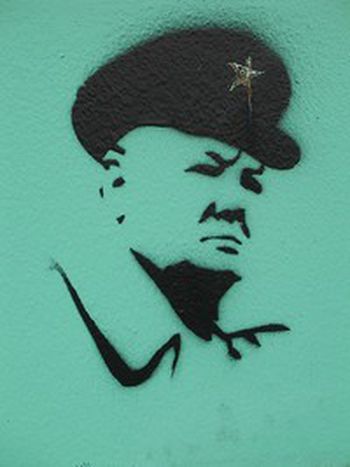
British and the EU: Je t’aime moi non plus
Published on
On 19th September 1946, British Wartime leader Winston Churchill called for a ‘United States of Europe’ during a speech in Zurich. Sixty years later, the British still do not want to join a federalist project – time for reflection?
Churchill was convinced that a kind of United States of Europe would be the ‘only way hundreds of millions of toilers would be able to regain the simple joys and hopes which make life worth living.’ Great Britain had its own Commonwealth, and was indeed still the largest imperial power in the world in 1946. It was surely partly for this that Churchill placed Britain alongside ‘mighty America’ and Soviet Russia as a potential ‘friend and sponsor’ of the new Europe, not a part of it. 60 years later, Britain’s empire has been lost or given away, and the importance of the Commonwealth has diminished immensely, but Britain still does not regard itself as fully part of Europe, and many in mainland Europe do not believe it is fully integrated.
Dealing with a distant partner
Great Britain has typically been enthusiastic about the common market aspects of the European project, but has had serious reservations about other aspects of integration. One MEP involved in the negotiations on the European Constitution wittily observed that the crucial difference between the European Convention and the Philadelphia Convention of 1787 that established an American Constitution was that the Americans dealt with the British issue first.
There is something in this: the former British Prime Minister John Major’s insisted in 1991 that the phrase ‘ever closer Union’ be used in the Maastricht Treaty rather than anything regarded as more federalist. The Blair government also maintained that a similar phrase should appear the European Constitution (‘united ever more closely’).
But instead of taking American federalism as a paradigm and seeing Britain as anti-European, perhaps this extended ‘period of reflection’ will enable us to think more specifically about the European Project. The great success of the European project over the last 60 years has been to begin to provide a forum in which questions of national identity can be examined and resolved peacefully and justly.
The motto of the European Union is ‘unity in diversity’. If we take this seriously it surely implies a constant questioning of personal and group identity, in the best European intellectual traditions – the ‘common inheritance’ of Europe Churchill himself identified. It is for this reason ‘Europe’ itself has no definable borders. The failure of each British government and media has been to so far largely refuse to take part in this debate, or even recognize it, and this failure is getting worse. They are not the only ones though. Churchill successfully called for ‘Europe to arise’. By recognizing the necessarily complex and perpetually unresolved status of its own identity, it would come of age and live. Britain, in virtue of its own difficult history of relations with Europe, is where that recognition could begin.



